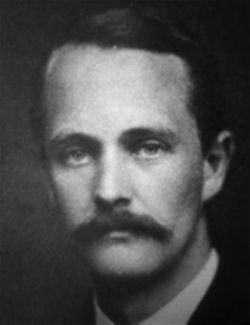The Text is given verbatim et literatim from John Aubrey's MS. of his Remains of Gentilisme & Judaisme (1686-7) in the Lansdowne MSS., No. 231, folio 114 recto and verso. This text has often been printed before, but always with errors. The only change made here is the placing of Aubrey's marginal notes among the footnotes: the spelling is Aubrey's spelling. The present version was obtained by Aubrey in 1686 from an informant whose father had heard it sung sixty years previously.
Sir Walter Scott's text, better known than Aubrey's, presents very few variations, the chief being 'sleete' for 'fleet' in 1.3 (see below). This would seem to point to the fact that Scott obtained his version from a manuscript, and confused the antique '[s]' (= s) with 'f.' A collation, incomplete and inexact, of the two texts is given by T. F. Henderson in his edition of the Minstrelsy (1902), vol. iii. pp. 170-2.
The Story.--This dirge, of course, is not a ballad in the true sense of the word. But it is concerned with myths so widespread and ancient, that as much could be written about the dirge as almost any one of the ballads proper. I have added an Appendix at the end of this volume, to which those interested in the subject may refer. For the present, the following account may suffice.
Ritson found an illustration of this dirge in a manuscript letter, written by one signing himself 'H. Tr.' to Sir Thomas Chaloner, in the Cotton MSS. (Julius, F. vi., fols. 453-462). The date approximately is the end of the sixteenth century (Sir Thomas Chaloner the elder, 1521-1565; the younger, 1561-1615). The letter is concerned with antiquities in Durham and Yorkshire, especially near Guisborough, an estate of the Chaloner family. The sentence referring to the Lyke-Wake Dirge was printed by Scott, to whom it was communicated by Ritson's executor after his death. It is here given as re-transcribed from the manuscript (f. 461 verso).
'When any dieth, certaine women singe a songe to the dead body, recytinge the iorney that the partie deceased must goe, and they are of beleife (such is their fondnesse) that once in their liues yt is good to giue a payre of newe shoes to a poore man; forasmuch as after this life they are to pass barefoote through a greate launde full of thornes & furzen, excepte by the meryte of the Almes aforesaid they have redeemed their forfeyte; for at the edge of the launde an aulde man shall meete them with the same shoes that were giuen by the partie when he was liuinge, and after he hath shodde them he dismisseth them to goe through thicke and thin without scratch or scalle.'
The myth of Hell-shoon (Norse, helsko) appears under various guises in many folklores.
Sir Walter Scott, in printing 'sleete' in 1.3, said: 'The word sleet, in the chorus,[1] seems to be corrupted from selt, or salt; a quantity of which, in compliance with a popular superstition, is frequently placed on the breast of a corpse.' It is true that a superstition to this effect does exist: but 'fleet' is doubtless the right reading. Aubrey glosses it as 'water'; but Murray has shown (New English Dictionary, s.v.), by three quotations from wills dated between 1533 and 1570, that 'fire and flet' is an expression meaning simply 'fire and house-room.' 'Flet,' in short, is our modern 'flat' in an unspecialised and uncorrupted form.
[Footnote 1: Scott repeats the first stanza at the end of his version.]
THE LYKE-WAKE DIRGE
(Lansdowne MS., 231, fol. 114 recto.)
1.
This ean night, this ean night,
eve[r]y night and awle:
Fire and Fleet and Candle-light
and Christ recieve thy Sawle.
2.
When thou from hence doest pass away
every night and awle
To Whinny-moor thou comest at last
and Christ recieve thy [thy silly poor] Sawle.
3.
If ever thou gave either hosen or shun
every night and awle
Sitt thee downe and putt them on
and Christ recieve thy Sawle.
4.
But if hosen nor shoon thou never gave nean
every night &c:
The Whinnes shall prick thee to the bare beane
and Christ recieve thy Sawle.
5.
From Whinny-moor that thou mayst pass
every night &c:
To Brig o' Dread thou comest at last
and Christ &c:
[fol. 114 verso]
no brader than a thread.
6.
From Brig of Dread that thou mayst pass
every night &c:
To Purgatory fire thou com'st at last
and Christ &c:
7.
If ever thou gave either Milke or drinke
every night &c:
The fire shall never make thee shrink
and Christ &c:
8.
But if milk nor drink thou never gave nean
every night &c:
The Fire shall burn thee to the bare bane
and Christ recive thy Sawle.
The Lyke-Wake Dirge
Frank Sidgwick
Suggested Poems
Explore a curated selection of verses that share themes, styles, and emotional resonance with the poem you've just read.
